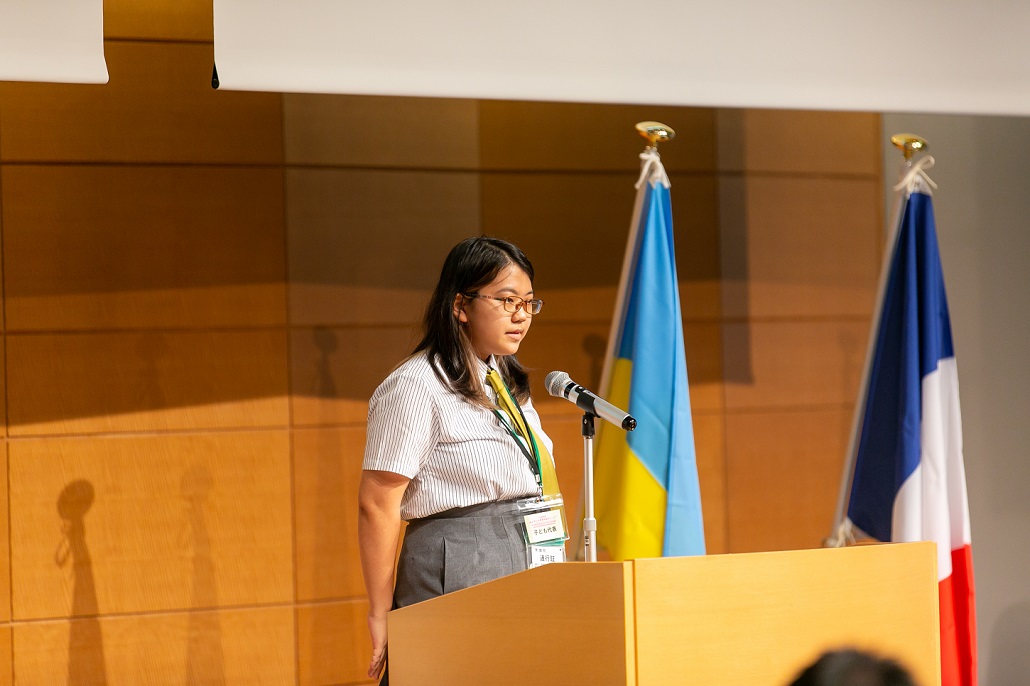I was living in Myanmar on February 1, 2021, the day of the coup in Myanmar.
Starting the next day, young people sang songs, played music, and held peaceful demonstrations, which they shared with the world on social networking sites. Do you all know why?
It was an appeal to the international community. Everyone thought, “There is no such thing as rule by force,” and “There is no way the international community will allow this unreasonableness.”
I also believed that the UN, ASEAN, and Japan would act to resolve the situation peacefully.
But the international community stood by and watched. The country’s armed forces began throwing tear gas canisters and firing on the unarmed population. Telephones and the Internet have been cut off, many people have been detained, and children have been deprived of educational opportunities. Some young people have burned their villages, lost their families, and have chosen to take up arms and fight.
I stand here today to tell you what I have seen.
My idea of “peace” is that everyone is free to learn and choose their own future.
I am now using karuta, a traditional Japanese cultural instrument, to tell the daily lives of the people of Myanmar. The people who are fighting for democracy now want to have their daily lives back, to eat with their families, to go to school, to fall in love, and so on.
But many Japanese people are indifferent to their fight. This is because they cannot see the “faces” of the people living there. I am working on a karuta (Japanese playing cards) project to tell the stories of their lives.
The war between Russia and Ukraine and the coup in Myanmar. In wars started by adults, it is the future of children that is taken away.
The conflicts in Myanmar and Russia have made me keenly aware of the danger of politics that does not reflect the will of the people.
For the sake of world peace, I would like to create a system in which children can say “No” to wars started by adults.
As a first step, I propose the introduction of a system that allows children to cast mock ballots at polling places in Japan. I would also like all politicians to prepare a “Children’s Manifesto” that a 10-year-old child can understand.
This will also provide accessibility to foreigners living in Japan, people with disabilities, and people who have never been interested in politics.
After returning to Japan, my mother took me to an election. (On that day, it could be read as “I went to the House of Councillors election on July 10.” (This may be read as “I went to the House of Councillors election on July 10.)
At that time, there were no tools for children to learn about the election at the polling place. We grow up without knowing anything about politics or elections. We are a free democracy, yet only 3 out of 10 young people in their 20s go to the polls.
In order to lose the taboo of talking about political issues, we should learn from a young age, through first-hand experience, that we have the responsibility to choose our own future. Myanmar’s problems are not those of a distant country. The problems of refugees and the problems of the specific skilled workers are also the problems of Japanese society.
You don’t think about politics, but politics thinks about you.”
Do you know who said that? They are the words of Aung San Suu Kyi’s father, who is still detained by the military.
There are many countries in the world where democracy is not yet the norm. First of all, we, Japanese people, should start from Japan. We, Japanese people, must protect democracy in Japan, because it is a step toward world peace.

